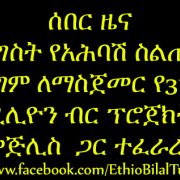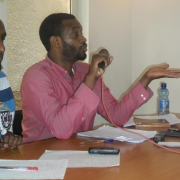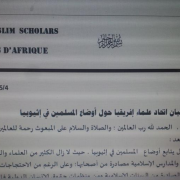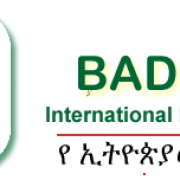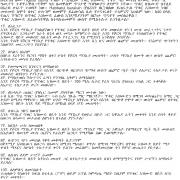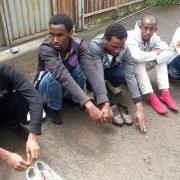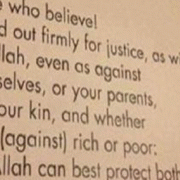Cairo yemigegnewu tawaqiwu onislam.new website Ethiopia wust be mengest Block mederegun Gelets
The Ethiopian government has blocked access to OnIslam.net and other media websites over their coverage of Muslim protests against government interference in their religious affairs.
“Many websites are blocked in Ethiopia,” sources told OnIslam.net on condition of anonymity.
Among blocked websites are OnIslam.net and Aljazeera.net over their coverage of protests by Ethiopian Muslims in recent weeks
Ethiopian Muslims have taken to the streets over the past weeks in protest at government interference in their religious affairs.
“Only few websites like OnIslam.net were following up and reporting the developments of the Ethiopians Muslim struggle,” the sources said.
Ethiopian Muslims accuse the government of spearheading a campaign in collaboration with the umbrella Supreme Council of Islamic Affairs (Majlis) to indoctrinate their community with the ideology of a sect called "Ahbash".
The government of Ethiopian Premier Meles Zenawi has put the Ahbash in charge of the religious affairs of Ethiopia's Muslims.
Muslims say the government move is in violation of the constitution, which prevents the government interference in religious affairs.
Muslims also accuse the Ahbash of launching an "indoctrination program" in predominantly Muslim areas, forcing people to attend "religious training" camps or risk police interrogation and possible arrest.
Founded by Ethiopian-Lebanese scholar Sheikh Abdullah al-Harari, Ahbash is seen by the West as a "friendly alternative" to Wahabi ideology, which the West sees as extreme and militant.
Muslims say Ahbash imams are being brought over from Lebanon to fill the Majlis and teach Ethiopians that “Wahabis” are non-Muslims.
Muslims make up about 34 percent of Ethiopia’s population.
Censorship
The censorship is seen as a desperate attempt by the Ethiopian government to prevent the issue of Ethiopian Muslim protests becoming more popular in the world.
“The Ethiopian government authorities blocked the highly visited websites like OnIslam.net and Aljazera.com for fear that the Ethiopian Muslim issue will become more popular in the Arab and Muslim world,” the sources said.
Ethiopia is notorious for Internet censorship.
Last month, the Ethiopian government installed a system to block access to Tor network – a “hidden” layer of the Internet, used to allow anonymous online communications.
In May, the government passed a law criminalizing the use of VoIP (voice over internet protocol) calls. Violators face up to 15 years in jail.
Providers of such services face up to eight years in prison and could also be imprisoned for using banned social media sites.
"The Ethiopian government is trying to attack every means of information exchange," Ambroise Pierre from the Reporters Without Borders Africa service told BBC News.
"There's already a very strict control over written press, and last year several journalists were arrested, and now the government is tackling communications over the internet.
"More and more people in Ethiopia are turning to new technologies, and some are even able to bypass censorship, which explains why the government is trying to use effective methods to control internet communications."
Users of Skype and similar Internet call services face up to 15 years in prison in Ethiopia.
The Ethiopian government says it was only illegal to use Skype "for fraudulent activities."


